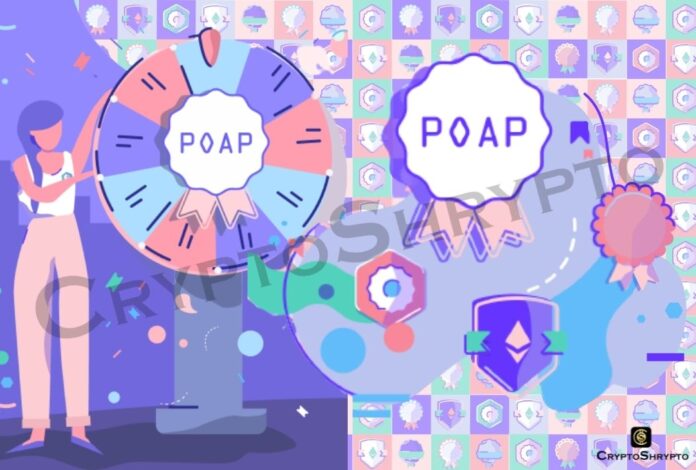The Proof of Attendance Protocol (POAP) is a blockchain-based protocol that generates digital badges or collectibles. The abbreviation POAP is derived from the protocol name, but it is also used to represent the collectibles themselves.
POAPs are created as non-fungible tokens (NFTs) on the Ethereum blockchain using smart contracts. They are ERC-721 tokens created to celebrate and record event attendance.
Typically, the one-of-a-kind NFTs are distributed for free to event participants, serving as verifiable proof that the holders attended that particular event. POAPs are similar to a collection of concert tickets, only they are digital and protected by blockchain technology.
POAPs were developed for the first time in 2019 at the ETHDenver Convention to reward hackers who attended and participated in the hackathon event. POAP switched to the Ethereum sidechain xDai in October 2020, owing to its faster transaction speeds and reduced transaction fees. This enables issuers to produce POAPs at a minimal cost.
Because POAPs are NFTs, they may be exchanged on a variety of NFT exchanges. POAPs, on the other hand, are basically documentation of the holders’ personal presence at an event. According to the developers, POAP was created to demonstrate what Ethereum is capable of and to allow crypto fans to demonstrate their dedication to Ethereum “before it was popular.” As a result, they are not designed to have a large monetary value, as exchanging POAPs would contradict the original use case.
POAP provides event organisers with a unique approach to connecting and communicating with their community. Event participants may often earn these unique NFT badges through QR codes during the event and engage in extra POAP platform activities such as community polls, giveaways, and the POAP leaderboard. SushiSwap, for example, airdropped POAPs to AMA participants and those who voted on its governance recommendations; Decentraland likewise distributed POAPs to virtual event attendees inside its metaverse.




